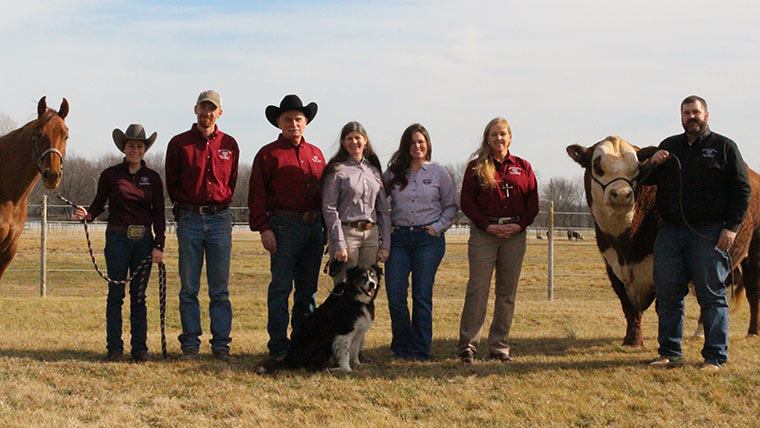Why major in wildlife conservation and management at Missouri State?

- Dive into the sciences – Combine your interests in agriculture and biology. Enjoy courses where you can study animal and plant life.
- Welcome new experiences – Get involved in research, field trips and internship opportunities. Develop your skills and do hands-on activities that will benefit your learning.
- Qualify for your career field – Gain the work experience and credentials to work in zoos, aquariums, natural resource organizations and more.
Nature is her workplace

Agriculture and biology: Get the best of both worlds
The wildlife conservation and management major is offered in cooperation with the biology department and the Darr College of Agriculture. You'll take courses in both biology and agriculture.
Depending on which topic you like more, you can pick one as your emphasis area.
- Agriculture emphasis: Focus more on agronomy and horticulture.
- Biology emphasis: Focus more on wildlife and natural habitats.
Plus, this major requires only basic courses in math and chemistry. It's a great choice if you want to work around wildlife or natural resources but aren't a numbers expert.
Degree options
You'll take courses in forestry, soils, ecology, fisheries and wildlife management, biology and plants.
With your elective courses, you can pursue a deeper emphasis in agriculture or wildlife biology.
Enhance your career potential with a master's degree
Many wildlife conservation and management majors go on to pursue a master's (graduate) degree. This will expand your career options and help you qualify for administrative positions.
An accelerated master's plan gives you a head start and helps you earn two degrees, sooner.

Passionate about wildlife? Explore a similar program based in biology
Within the biology major, you can choose a focus area in wildlife and fisheries.
This track can help you become a Certified Wildlife Biologist (CWB) or pursue federal roles.




